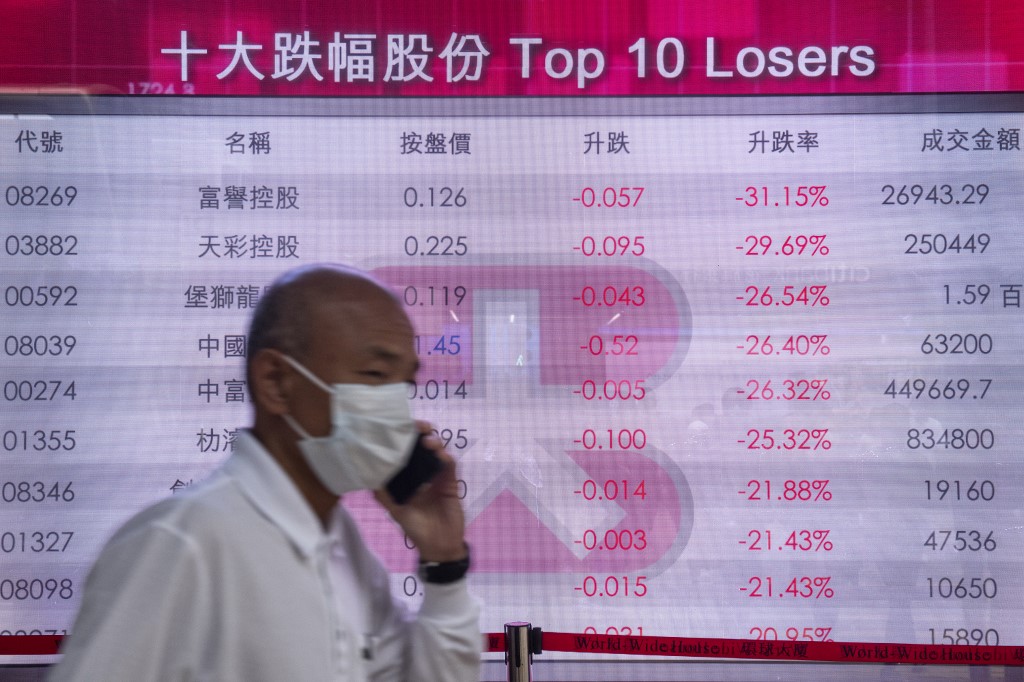(ATF) China’s newspapers have been abuzz with news that regulators have suspended the declaration of early-stage Exchange-Traded Fund products such as semiconductors, 5G, electric vehicles, and have also halted ETF commodities such as crude oil, due poor liquidity.
The suspension of ETFs for a wide range of new high-tech funds has created confusion, as the government has been clamouring that these are the technologies that will save the economy, if not the country.
Data from Sina Finance shows that the average decline of Exchange-Traded Funds in the first quarter was 5.33%, while enhanced index funds, which are more flexible than ETFs, fell by an average of 4.64% in the first quarter.
A total of 654 ETFs that can be counted (A, B & C shares are calculated separately) had a total loss of 68.50 billion yuan in the first quarter.
Affected by the adjustment of the technology sector in the first quarter, technology and 5G theme ETFs suffered the most overall losses. Some 21 ETFs lost more than 1 billion yuan in the first quarter, while 97 ETFs lost more than 100 million yuan over the same period.
ETFs with a gold theme and a pharmaceutical theme made the most profit. A total of 16 ETFs made a profit of over 100 million yuan in the first quarter. According to other data, 186 enhanced index funds that can be counted (A, B & C shares calculated separately) had total losses of just under 6 billion yuan in the first quarter.
Stricter adherence to guidelines
Almost no ETFs have been approved since tech stocks dived in March. There are unanswered questions about how bad the situation really is, but the much stricter adherence to guidelines on ETFs suggests that regulators have deep market worries.
Industry insiders such as Blue Whale Finance have noted that it is not only the “hot” ETFs such as technology and new electric vehicles that are facing tighter regulation, but all narrow-based ETFs have been strictly blocked.
The main regulatory indicators that are being applied include factors such as the market value of index stocks, the proportion of the market, and the activity of constituent stock trades. The investment and research capabilities of fund companies in related fields are also being taken into account.
The approval schedule published on the official website of the China Securities Regulatory Commission confirms this. Regulators have not accepted narrow-based ETF products since March, and many new products have stayed in the “receiving materials” stage.
According to the latest report on progress in approvals for applications for fundraising, from the beginning of March to April 10, the SRC only accepted two ETF funds, both of which are broad-based ETFs, such as the MSCI China A-Share ETF newly declared by ICBC Credit Suisse.
But the Regulatory Commission’s approval schedule shows that from early March to the same period up to April 10, there were many industry ETFs, such as Southern China Securities Cloud Computing and the “Big Data ETF”, China Securities Media ETF, and others.
Many industry ETFs yet to be accepted
None of them were accepted, and their current status is still at “receiving materials” stage. Even ETF products that are clearly policy-oriented, such as new infrastructure ETFs and Hubei new and old kinetic energy conversion ETFs, have not been accepted.
Narrow-based ETFs have relatively few component stocks, and major fund companies will follow trends to issue ETFs related to market “hotspots”, such as applying for a technology ETF in the early stage of development. It is only when funds get together that they help create a broader-based ETF.
This problem is more prominent for small and medium-cap stocks. For example, since the second half of last year, technology stocks have advanced aggressively, and fund companies have also rushed to issue themed ETFs such as 5G, chips, and new energy vehicles. These were snapped up. Funds have poured into some technology stocks through ETFs.
In March this year, as the market fell sharply, funds flowed out of technology ETFs, which for some smaller technology stocks also exacerbated share price volatility, indicating some bad news for investors. This may partly explain meetings by China’s top financial brass to call for company transparency to protect investors from shock outcomes.
Some public fundraisers have said that various fund companies are competing when issuing narrow-based ETFs, because the structure of the broad-based ETF market has been fixed. It is difficult for latecomers to break through, and product innovation should be encouraged, but the investment research and index compilation ability obviously has not been followed like in the past.
Most fund companies did not follow the design of their products. They just followed the money.
Also read:
























